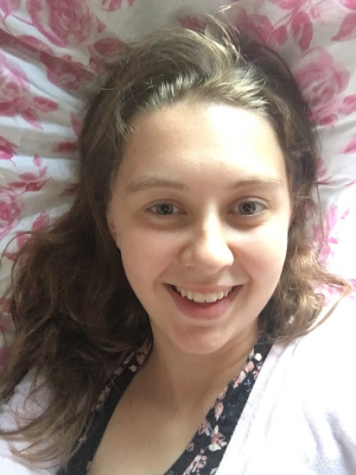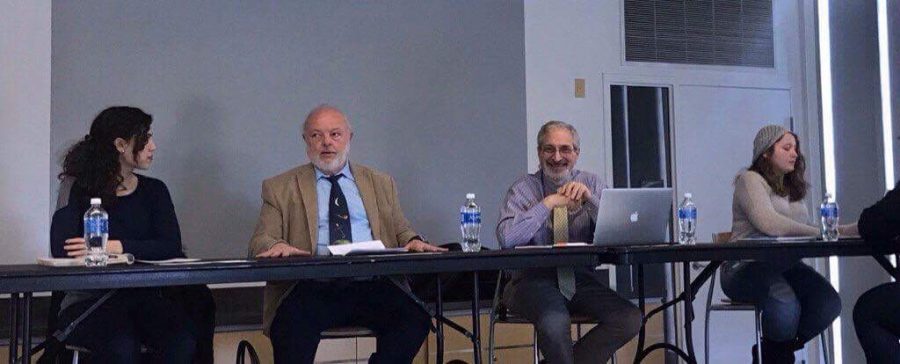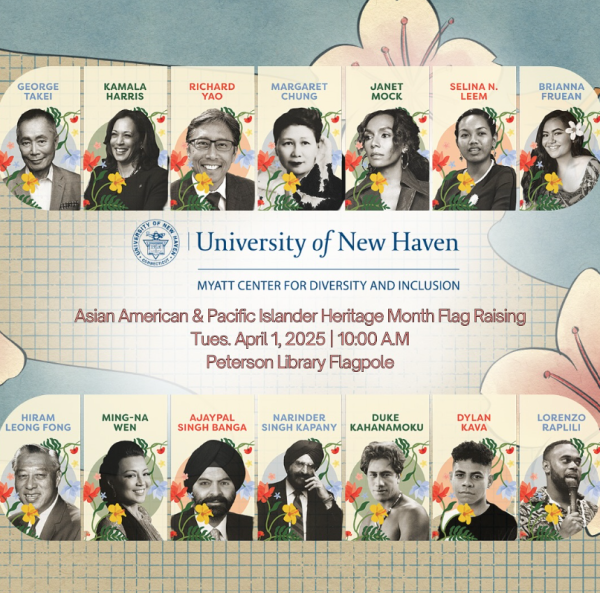A Panel on Free Speech for College Campuses
On Wednesday (March 29) the student dining room was filled with students and faculty across campus, all gathered for the Charger Bulletin’s panel on free speech on college campuses. The panel was organized by the University of New Haven’s Charger Bulletin and Society of Professional Journalists, to discuss the free speech allowed and given on college campuses.
The panel featured Student Life Editor for Charger Bulletin, Karina Krul, Copy Editor for CT Post and former Editor in Chief of the Charger Bulletin, Liana Teixeira, professor of Communications at the University, Dr. Steven Raucher, and journalist and professor at Southern Connecticut State University, Jerry Dunklee.
Moderated by Glenn Rohrbacker, Editor in Chief of the Bulletin, the panel offered an outlet for students and faculty alike to express their ideas and concerns regarding free speech, both at the University and at colleges and universities across the nation.
The panelists were presented with a series of questions about how colleges allow or limit students the freedom to speak their thoughts and views. Students were also able to speak their minds and give their opinions, as well ask the panel questions. There was a strong focus on private universities, such as the University of New Haven, who are not bound by the 1st amendment. The afternoon delved into questioning, as the topic became how much freedom students at the University are allowed to have.
“Any private settings are not governed by the first amendment . . . it is important to understand that universities generally are not considered a democracy, but an autocracy,” said Raucher. “What is important here is not just the freedom of speech, but the quality of speech, and completeness of speech and the accuracy of speech.”
Liana Teixeira elaborated on how private universities could try to act more like public universities in terms of the freedoms they give and how they operate.
“I think the best thing for any university and private university to do is to mimic a lot of the regulations that govern public universities…you allow them to express themselves,” she said.
Private universities operate under their own personal standards, created by the school itself. The level of freedom varies between private universities, giving the students as much or as little as they see fit.
“The best private universities, clearly, are those who have the highest levels of protected free speech as possible,” said Professor Dunklee, who has taught at both private and public universities. “Schools that engage in censoring student expression are those that have more problems within the universities than those like Yale or others around the United States.”
The discussion of private versus public universities use of free speech transitioned into universities censoring students whom they did not agree with or believed were too harsh reporting major events. Several universities have run into major problems by attempting to censor what students have written. Wesleyan University cut three-quarters of the student newspaper budget when they published an article focusing on “Black Lives Matter” that the student council did not like.
The panel offered advice for reporting on sensitive topics, in order to retain journalistic integrity and stay within university policies. Raucher explained that major reports such as arrests or protests must be “accurate, clear, and as honest as possible,” while Dunklee explained how people use censorship to escape issues and avoid discomfort.
Other important discussions included how freedom of speech can be abused, from students using their freedom of speech to attack others of different races, religions, and sexual orientations to how universities handle the issue.
Teixeira explained that there is an “important difference between hate speech and hate crime,” in terms of legality. Students must understand that while they may have the freedom of speech, using it for hate and violence can be dangerous, she said. Professor Dunklee explained that the use of certain language depends on the speaker, whether it is an actual threat towards a minority, or if it simply an acceptable use of speech between two people.
The event went a little deeper into the focus of how political power has an effect on what people say in public. Everyone gave examples of how both sides are afraid to talk.
“People have been cruel to a number of journalists as well as people who criticize a certain aspect of Trump’s plans . . . and some of [the people] fall under fire,” explained Professor Dunklee.
Krul explained the importance of not putting all Republicans under the same umbrella, making assumptions about their beliefs.
“If we hear some lean slightly towards Republican party we assume they are Trump supporters…on college campuses we’re very willing to jump down peoples’ throats and attack,” she said.
The panel was also asked how to handle freedom of speech when it leads to criticism and backlash. Overall the four members had a similar response: it is necessary and people must get over it.
“We have to put up with speech we oppose, it makes us stronger,” said Raucher. “When you do this you are going to provoke people . . . and you want that kind of controversy, have to know you create a culture on campus surrounding the event that allows for everyone who has an opinion an opportunity to say it.”

Sarah is a junior studying Dental Hygiene. She is often writes for Opinions, Student Life, and Entertainment. Sarah has started writing for Charger Bulletin...










Student z • Apr 13, 2017 at 12:49 pm
When you accept federal “public” tax money, you accept the first amendment, one would assume?